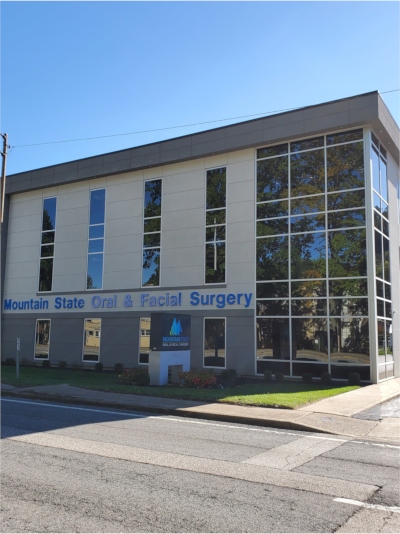| Things to Ask Your Oral Surgeon Before Getting Sedation |
If you are going to have any sort of oral surgery, there is a good chance you'll be sedated when it happens. While sedation is perfectly safe in most cases, there are a few things you will want to keep in mind. Here are a few things you should be sure to talk with your oral surgeon about before you get sedated.
Will the Sedation Have Any Lingering Effects?
Some types of sedation wear off rather quickly, allowing you to resume your normal daily activities in a relatively short period of time. On the other hand, other types remain in your system for hours or even longer, meaning you will need to plan beforehand for things such as a ride home from the surgery and help with any errands you may need to run.
Talk to your oral surgeon about the type of sedation they will use. Understand how long it will prevent you from doing things like driving, operating machinery, or consuming alcohol. Make sure you plan accordingly.
Will the Sedation Interact with Other Medication?
Remember that sedation involves using a drug. And, as with any other drug, you need to understand how the sedative your oral surgeon uses may interact with other drugs that you may be using. Whether you are taking prescription drugs or simply an over the counter medication, you need to know how it will interact with the sedative you'll be on.
By taking a few minutes to talk with your oral surgeon and ask questions, you can help ensure a smooth and rapid recovery.
|
|
|
|
Schedule a Consultation Kanawha City Office Address
Mountain State Oral and Facial Surgery 4307 MacCorkle Ave SE Charleston, WV 25304
Phone: 304-345-1092
Email: Send us an email 
|
|
|
|
| How Long Does it Take to Heal From Oral Surgery?
|
People getting ready to receive oral surgery may have concerns about the recovery process. After surgery, you should care for the gums and teeth. You also want to ensure you get back to your usual life. Something to note is that the recovery timeline varies based on the surgery you receive, your physical health, as well as your age. Bleeding should stop within 24 hours after surgery. Full healing could take up to two weeks.
During the first week following surgery, you may return to your usual activities. You may also need antibiotics during the healing time to minimize the odds of infection. Nonetheless, you can drink, brush, and eat normally after a week. A follow-up appointment may be required after the two-week timeframe to allow the oral surgeon to check for any potential problems and update you on how you are progressing.
|
|
|
Dental Implant Maintenance |
Do you have implants? Do you love your new smile, and want to keep it as healthy as possible? It is important to know that your implants are not invincible. In a small percentage of cases, implants can fail and might need to be removed. Implant restorations are built to last you a lifetime, but for that to happen, you must be willing to be vigilant in your care of them. The more effort you put into maintaining your implants, the longer they will last.
Even if you don’t have implants, but are considering investing in them, it is wise to prepare yourself for the care and consideration they will require to keep your newly restored smile healthy.
General Care Instructions
The maintenance and oral hygiene routine that is recommended for dental implants are similar to that of natural teeth. The required daily care is simple, but crucial to maintaining your healthy smile:
| • |
Brush twice a day with a soft-bristled toothbrush for two minutes total. Be sure to use toothpaste that is not too abrasive, and that specifically controls tartar.
|
| • |
Use floss after eating.
|
| • |
Rinse with antimicrobial mouth wash.
|
| • |
Take advantage of regular checkups with your dentists every six months. |
Keep in mind that it is possible to scratch your implants, so be gentle and thorough.
You should also know that some implants are coated with titanium plasma, which imitates the micro-rough surface of natural teeth. Studies show that these implants, while more realistic, are more likely to accumulate plaque than implants with smooth surfaces.
Precursors to Implant Failure
If you neglect your dental implants, they or the gums that hold them in position can get infected, which can lead to implant failure. Implant failure is statistically rare. Ninety-five percent of implant restorations are successful. However, ten percent of implants and twenty percent of patients will develop either one or both of the following:
| • |
Peri-Mucositis: This condition is defined as the inflammation of the soft tissue around the implant, and is marked by bleeding from the gums. Studies show that peri-mucositis can be reversible if it is caught early. Bleeding is not normal, and if you notice it call 304-345-1092 to schedule an appointment.
|
| • |
Peri-Implantitis: If peri-mucositis is not treated then it can develop into peri-implantitis, which is the inflammation of the soft and hard tissue due to infection around the implant. This condition is not reversible, and if it is not treated and controlled, then it can lead to advanced bone loss of the jawbone. Because the implant is fused to the bone tissue, it will need to be removed in the advanced stages of peri-implantitis as it will no longer be properly anchored into place. |
Smoking With Dental Implants
If you are a smoker, you should know that smoking can increase your chances of experiencing implant failure. Smoking puts you at a greater risk of infection after surgery, and the healing process will usually take longer. A non-smoker has a 1.4 percent risk of implant failure; for a smoker, that statistic increases to 15.8 percent.
Have More Questions?
Call Mountain State Oral and Facial Surgery at 304-345-1092 today. We would love to answer any questions you might have.
|
|
|




